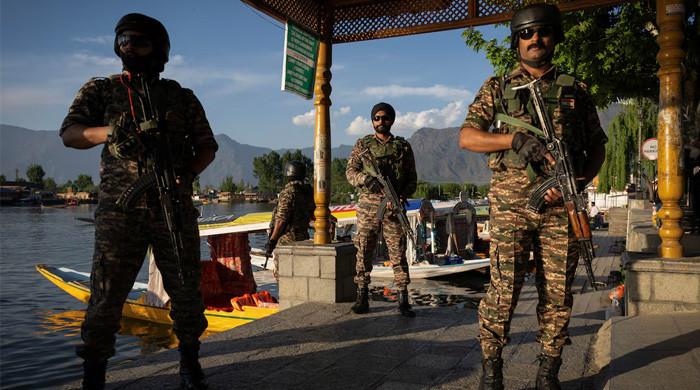Bill banning corporal punishment approved by cabinet, to be presented to NA: Mazari
Human Rights minister Shireen Mazari says anti corporal punishment bill will be tabled before National Assembly soon
March 05, 2020

ISLAMABAD: Minister for Human Rights Shireen Mazari on Thursday said a bill banning corporal punishment in schools across the country had been approved by the federal cabinet and would be tabled before the National Assembly soon.
The minister made the revelation after attending the hearing of a petition filed by singer-turned-activist Shehzad Roy at the Islamabad High Court (IHC) against corporal punishment in schools. IHC Chief Justice Athar Minallah conducted the hearing.
Also read: Islamabad High Court bans corporal punishment in capital city
Last month, the high court had ordered a complete ban on corporal punishment in educational institutions operating in the federal capital territory. Justice Minallah had subsequently also suspended Section 89 of the Pakistan Penal Code, which allows corporal punishment in some cases in the federal capital territory.
'Interior ministry raised objections'
"The federal cabinet has approved the bill, and it will now be tabled in parliament," Mazari told the courtroom on Thursday morning.
"The Ministry of Interior raised objections to the bill, claiming that the matter does not fall under the jurisdiction of the human rights ministry," she said.
Also read: Student tortured by teacher in Bahawalnagar, suffers injuries to head, eye
Upon hearing this, Justice Minallah said that the matter did indeed concern human rights and the federal government was obligated to legislate upon it.
"The interior ministry has also asked us to table the bill before the Council of Islamic Ideology," Mazari informed the court.
"We support the ban on corporal punishment. Prime Minster Imran Khan has also said that that corporal punishment in schools should be abolished. The court should declare Section 89 of the Pakistan Penal Code null and void," Mazari pleaded during the hearing.
Also read: Celebrities push for solutions to prevent child sexual abuse in light of Farishta case
After hearing the statements made by Mazari, Justice Minallah remarked that under Article 14 of the Constitution of Pakistan, the intent to hit a child can never be deemed a 'good' one.
"Physical and mental punishments negatively affect the personality of a child," Justice Minallah noted. "We cannot endorse corporal punishment in schools. Even Islam forbids torture against children. There is never a good intention to hit a child. The times have changed: we must give more respect to children," he added.
Also read: Senate adopts Zainab Alert Bill 2020; Jamat-e-Islami opposes, PML-N recommends amendments
'Thankful to media for support'
Activist Shehzad Roy, while talking to reporters after the hearing, hoped that the bill banning corporal punishment would be tabled in the National Assembly soon.
"[Support for] corporal punishment is a mindset. A law will be made against it soon," he assured reporters.
"We are thankful to the media for supporting us in this cause. Hitting children is against the teachings of Islam. We have signed international agreements in this regard. A law on it has been adopted by provinces, but not yet by the federal government," he noted.











